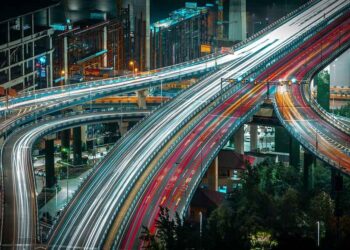The next stage in gaining more ambitious pledges to a zero-emission vehicle transition in line with the Paris Agreement was the establishment of the Accelerating to Zero (A2Z) Coalition on November 17. Over 200 stakeholders have pledged their support for a quick transition to zero-emission mobility, as announced on Solutions Day at COP27.
The A2Z Coalition links the top organisations in the world working in the field of zero-emission transportation, providing a forum for sharing knowledge, formulating bold goals, and putting leadership into action.
Transportation contributes about 20% of the world’s greenhouse gas emissions; therefore, changing the sector is essential to achieving the Paris Agreement’s targets. With assistance from the A2Z Coalition, more than 200 organisations representing governments, business, and civil society are working together to hasten the transition to zero-emission transportation.
The International Council on Clean Transportation, the Climate Group, the Drive Electric Campaign, and the UK government’s COP26 Presidency have joined forces to form the A2Z Coalition, which aims to have zero-emission new automobiles and vans sold in all major markets by 2035 and globally by 2040.
Partners with the A2Z Coalition are also accelerating the development of zero-emission heavy and medium-duty vehicles.
The Zero Emission Vehicles Declaration (ZEV Declaration), which was produced at COP26 and hosted by the UK COP Presidency in cooperation with the High Level UN Climate Champions and the Climate Group, is the basis upon which the A2Z Coalition is built. Over 200 signatories from national and subnational governments, automakers, NGOs, businesses, fleet operators, and others have joined the initiative, which was first introduced at COP26. They are all committed to having all new cars and van sales be zero-emission by 2035 in leading markets and by 2040 globally.
Since COP26, the global market for electric vehicles has grown by 95%. However, according to climate experts, the world needs to speed up the transition. Sales of electric vehicles will need to increase five times faster for passenger cars, ten times faster for electric buses, and even more quickly for freight.
As progress on new promises for zero-emission cars from both automakers and governments has stalled over the past year, BloombergNEF’s ZEV Factbook, released on November 17, raises a warning. Almost 41% of the worldwide passenger car market will be covered by national ZEV targets and ICE phase-out targets by 2035, which is the same as last year.
Automakers with ICE phase-out goals for 2035 represent 23% of the market, up marginally from 19% in 2017. COP26’s UN Climate Change High-Level Champion for the UK, Nigel Topping, stated that governments and industry should prioritise accelerating the shift to a sustainable and clean transportation sector. In order to enhance pledges and support the ZEV Declaration signatories, they are happy to introduce the A2Z Coalition as a forum that builds on the good momentum created by the ZEV Declaration.
They call on additional non-state actors to step up next year and make and implement bold promises to move to zero-emission vehicles and reap the benefits of good air, employment, economic expansion, and keeping the Paris Agreement goals within reach, the statement reads.


































